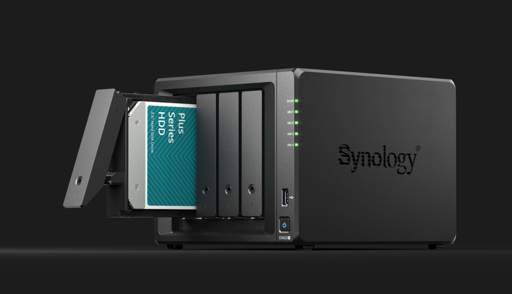Synology’s telegraphed moves toward a contained ecosystem and seemingly vertical integration are certain to rankle some of its biggest fans, who likely enjoy doing their own system building, shopping, and assembly for the perfect amount of storage. “Pro-sumers,” homelab enthusiasts, and those with just a lot of stuff to store at home, or in a small business, previously had a good reason to buy one Synology device every so many years, then stick into them whatever drives they happened to have or acquired at their desired prices. Synology’s stated needs for efficient support of drive arrays may be more defensible at the enterprise level, but as it gets closer to the home level, it suggests a different kind of optimization.
It’s like they don’t understand their demographic.
They absolutely do. But it’s a symptom of capitalism. They must seek higher and higher profits each year. And this is one of their ideas to seek higher profits…
That would be my exit sign
Mine too. Already priced a new build half the price just the data migration I’m not looking forward too.
The enshittification/rent seeking continues. Nothing is sacred.
If I had known how bad it’d get I would’ve chosen a different field to work in. Sure, I can avoid it in my private life but on the job it’s like I’m in some kind of hostage situation.
“Oh hi there customer! You know our product your users are accustomed to will only come as a subscription from now on and it’ll also be really bad and force full screen ads. We’ll push two updates per day because our unpaid interns are so agile. Bugs? Oh, no, we call those ‘micro disruptions’. They’re a feature but don’t cost extra! How much the license costs? Well, how much do you have? Yes, it’ll be that much.”
I get why they do this sort of thing but it didn’t stop us re-adding video station and h265 support back into our Synos.
Someone already made a script to overwrite the existing compatible drive checker so someone will write a new script to fix the new one.
Lmao what is Synology smoking. I have used their hardware in the past, now I’m so glad that I chose a Nextcloud setup for my home storage solution.
Also why does the nonsense reasoning for these limitations always include “security”. That’s a rhetorical question btw, I know they are just making shit up.
This comment by Frodo Douchebaggins in the Ars Technica comments sums up my newfound disrespect for Synology pretty well:
Suck a turd, you enshittifying sons of bitches.
Critical Synology Vulnerability Let Attackers Remote Execute Arbitrary Code
Just build your own. It’s easy. Move on.
deleted by creator
I own a Synology NAS. It’ll be the first and last one I buy. When I need an upgrade I’ll go back to building my own again.
This will not end well for them.
i was considering these devices for my home media set up, now im just building my own NAS with some old parts i had laying around and using open source software.
fuck this shit.
They should be careful, they’re just selling small form factor computers with removable drive bays. Standing up and unraid or a true Naz isn’t all that difficult. And then there’s plenty of competition out there ready and willing to eat their lunch.
Well, I had been considering one, but I guess not
It sucks, because all things considered, they’re great little devices. I really like mine.
That’s what I’ve heard… Getting real tired of people building great products only for corpos to find a way to make it terrible for an extra buck
Def agree.
Died 1990s, born 2025 - welcome back Mac hard drive firmware lockdowns
I was looking at simple 2 bay home NAS and Synology was - quite logically - one of the contenders. Now I’m glad I ordered differently. Went with Asustor AS5402, which might be not as polished package as a Synology option, but they’re very open about it and say it’s just regular PC so you can instal e.g. TrueNAS if you want. This openness convinced me.
Is the main appeal of prebuilt NAS cases the aesthetics and the reduction of DIY concerns?
Because they seem to me like overpriced and underpowered computers. Most tech-oriented folks I know have more powerful PCs in a closet somewhere that they could easily convert into a NAS
Edit: some very thoughtful responses thanks y’all! I definitely see the appeal for people who just need something that doesn’t need tinkering or care significantly about power draw and noise.
I am a tech oriented person, I work in IT, and a Syno ticks the boxes in many respects.
-
Low power draw. Power efficiency is very important to me, especially for something that runs 24/7. I don’t know how efficient self-build options are these days, but 10 years ago I couldn’t get close to the efficiency of a good NAS.
-
Set and forget. I maintain enough systems at work so I don’t really want to spend all of my free time maintaining my own. A Syno “just works”, it can run for months or years without a reboot (and when it does need one, it does it by itself overnight), and I can easily upgrade or swap a dead drive in a couple of minutes. When the entire NAS dies I can stick the drives in a new one and be up and running almost instantly.
-
Size and noise. I don’t have a massive house, so I need something that can sit on a shelf and be unobtrusive. In our last house it was literally sat in the living room, spinning drives constantly, and nobody was bothered by it.
The Syno I have is plenty good enough to run a bunch of Docker containers and a few VMs for all of my self hosted stuff, and it just does the job efficiently, quietly, and without complaining or needing constant maintenance.
I don’t like this creep towards requiring branded drives and memory, though I’m pretty sure it’s not legal in the EU. Regardless there are ways around it.
Yeah I agree, I set up a synology as a little summer project and I didn’t want to go out and source parts and put a nas Linux distro to do everything myself. Synology is newbie friendly and kind of holds your hand to do everything even dynamic dns. However, if I were to get another nas, I would be more comfortable setting it up myself.
-
I think the biggest draw to Synology now is the ultra low power consumption. Yeah, you could totally repurpose an old PC, but it’s crazy to run 500W perpetually. The reason they use old Celeron processors is the low power draw. In time, hopefully, RISC V can produce some low cost systems that would slot in well for this use case.
Obviously everything depends on use case. I definitely am a tinkerer and prefer options. I’d never run a jellyfin server off a synology NAS cause… Well cause it can’t transcode very well. So efficiency is less of a concern than processing power.
I get now that my questions was a bit moot, obviously some people will pay a premium for a narrow use case if it brings reliability and ease of use.
You are paying for reasonably well polished software, which for non technical people makes them a very good choice.
They have one click module installs for a lot of the things that self hosted people would want to run. If you want Plex, a onedrive clone, photo sync on your phone, etc just click a button and they handle installing and most of the maintenance of running that software for you. Obviously these are available on other open source NAS appliances now too so this isn’t much of a differnentiator for them anymore, but they were one of the first to do this.
I use them for their NVR which there are open source alternatives for but they aren’t nearly as polished, user friendly, or feature rich.
Their backup solution is also reasonably good for some home labs and small business use cases. If you have a VMware lab at home for instance it can connect to your vCenter and it do incremental backups of your VMs. There is an agent for Windows machines as well so you can keep laptops/desktops backed up.
For businesses there are backup options for Office365/Google Workspace where it can keep backups of your email/calendar/onedrive/SharePoint/etc. So there are a lot of capabilities there that aren’t really well covered with open source tools right now.
I run my own built NAS for mass storage because anything over two drives is way too expensive from Synology and I specifically wanted ZFS, but the two drive units were priced low enough to buy just for the software. If you want a set and forget NAS they were a pretty good solution.
If their drives are reasonably priced maybe they will still be an okay choice for some people, but we all know the point of this is for them to make more money so that is unlikely. There are alternatives like Qnap, but unless you specifically need one of their software components either build it yourself or grab one of the open source NAS distros.
I see! Thanks so much for the thoughtful response definitely seems like there’s a use case for people who might be more creatives with a need for storage rather than self-hosting enthusiasts who want to mess around in a homelab.
The prices are still a bit eye watering but you pay for software support for sure.
Reliability. We’ve put them in small businesses and they do their job very well VS a frankenpc NAS.
I have 2 8-Bay devices at home and they are so good for what they are. Silent, low power, bit of fancy utility for those that like it but reliable and quality. They age very well.
I also use the surveillance station with my cameras which all connected ootb fine. (mix of brands)








